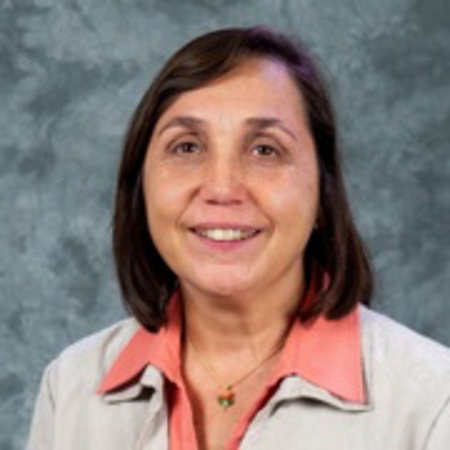Andrea Doseff
Professor, Department of Physiology
Faculty, Cell & Molecular Biology Program
Professor, BioMolecular Science Gateway
Location: 4173 Biomed Phys Sci
Phone: 517-884-5155
Email: doseffan@msu.edu
Bio
###Education PhD, Cold Spring Harbor Laboratory, Cold Spring Harbor, New York and State University of New York at Stony Brook. B.Sc. Biology, Faculty of Science, University of Buenos Aires, Argentina. ###Previous Appointments Professor, 2015-2017, Department of Molecular Genetics, College of Arts and Sciences and Department of Cell and Molecular Physiology, College of Medicine. The Ohio State University, Columbus, Ohio. Associate Professor, 2008-2015, Department of Molecular Genetics, College of Arts and Sciences and Department of Cell and Molecular Physiology and Department Internal Medicine, College of Medicine. The Ohio State University, Columbus, Ohio Assistant Professor, 2002-2008, Department of Molecular Genetics, College of Arts and Sciences and Department of Internal Medicine, College of Medicine. The Ohio State University, Columbus, Ohio Research Scientist, 1998-2001, The Ohio State University, Columbus, Ohio Postdoctoral Fellow, 1996-1997, Cold Spring Harbor Laboratory, New York. ###Research Interests Main areas of research: Regulatory gene and protein networks of immune cell fate and apoptosis; anti-inflammatory and anti-carcinogenic mechanisms of phytochemicals; phytochemical target identification; the role of cell death regulators in immune-regulation and immune-oncology; foods for health. Our research focuses in understanding the mechanisms that regulate apoptosis and cell fate. These mechanisms are essential for normal cellular and immune function, contributing to normal development and controlling cancer and other inflammatory diseases. We use genome-wide analyses, proteomics, molecular, biochemical, cellular and animal models to elucidate the gene and protein regulatory networks that regulate cell death. We are integrating these approaches to elucidate how cell death proteins and its regulators define cell fate, reduce cancer resistance and control immune-function. In addition, we study the role of plant compounds (phytochemicals) in the regulation of immune cell function. We have developed new approaches to identify targets of phytochemicals in humans, contributing to the discovery of new mechanisms by which dietary phytochemicals control cancer and immune-function. These findings are significant providing opportunities for immune-oncology and immune-regulatory therapies. Our research revealed the role of phytochemicals in halting cancer development and metastasis by modulating gene expression and RNA splicing. Towards the development of foods for health, we are working in functional foods that increase the efficacy of phytochemicals, facilitating the implementation of novel alternative approaches for the prevention and treatment of cancer and other inflammatory diseases. ###Publication [Google Scholar](https://scholar.google.com/citations?hl=en&user=19KQ9w8AAAAJ&view_op=list_works&sortby=pubdate)
